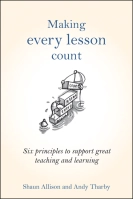Whether you are an NQT or an experienced teacher, standing in front of a new class, or thinking about doing so, for the first time is always a bit daunting. The first few weeks with a new class are so important, and can set the tone for the rest of the year. So with September looming, here are some practical tips, to help you get off to the best possible start with your new classes, over the coming weeks.
- Have a seating plan – this is the most important weapon we have in our armoury and you ignore it at your peril. Keep it simple to start with, for example alphabetical, but don’t be afraid to review it and change it, if issues arise. Lessons are not social events – if teenagers are allowed to sit next to their friends, they will be more interested in chatting than working. This is not conducive to effective learning.
- Learn their names – again, another vital tool. Not only does this introduce a more civil ethos in your classroom by showing students that you value them as people, but it also allows you to manage behaviour in a more targeted way e.g. ‘John, please turn around and focus on the task’. John knows immediately that you mean him!
- Know your students – whilst every year is a new start, it is useful to find out as much about your students as possible. Talk to teachers who have taught them before – what are they good at? What do they struggle with? Any potential behavioural issues to be aware of? What was the quality of their work presentation like last year? Align this with prior data – what have they achieved well in? Where have they underachieved? Any specific topics? Why was this? By doing this, you know their starting point and what you need to do in order to help them achieve in the future.
- Be explicit about your classroom routines – don’t take this for granted. Tell and show them how you classroom works. Classroom routines are so important and need to be explicitly shared with students. Do you want them to line up or come straight in? Where will their books be? Explain how you want them to set their work out e.g. underline headings and date etc. Tell them that there will always be a task for them to do as soon as they get in the classroom and the sort of thing this will entail. You expect silence for the register. When they are working on a task, you will tell them if they are working silently, or if some discussion is allowed. How do you expect classroom discussions to run? Do you want hands up to questions? etc etc.
- Share and demonstrate your expectations immediately – right from the start, show them that you have the highest expectations in terms of their behaviour, work, punctuality, effort and achievement. So, start the first lesson quickly, with a piece of challenging work – for three reasons. Firstly, it will demonstrate to them your passion and confidence in your subject. This will make them feel secure and hopefully become infectious. Secondly, it will give them the opportunity to struggle and produce a piece of work that they can be proud of – something that can be a reference point for the rest of the year – ‘Look, this is what you can do, when you really focus’. Andy calls this a ‘benchmark of brilliance’. Our Director of Art & Design, Gail Christie, does this brilliantly every September, by showing her new Y10 class the best sketchbooks from the newly departed Y11 – read more about this here. Finally, by getting on to challenging piece of work quickly, you are giving the message to students ‘this is what we do in here – work hard’. During the first few lessons, scrutinise their presentation and work closely. If it is not up to standard, give them feedback about how to improve it. This is vital, as it helps them to understand your standards – and that you won’t accept sub-standard work. Our Director of Science, Steph Temple, expects all teachers in her team to show all new classes a powerpoint that sets out the standard of presentation expected – see here. Similarly, be explicit about the standards of behaviour expected in your class e.g. ‘When me or anyone else is talking to the whole class during a lesson, we are respectful and listen. When we are working independently on a task, we are silent. When I set homework, it will always be handed in on the due date. You will get to my lesson on time and settle to work immediately’. As well as talking explicitly about the behaviour you expect, also be very clear about the sanctions that will be coming their way, if they don’t meet these expectations.
- Address poor behaviour immediately – having been explicit about your behaviour expectations and the sanctions for non-compliance, as soon as anyone gets it wrong, deal with it and follow it up immediately. Whether this be a quiet word with them to get them re-focused, or following school systems, such as calling duty staff or setting a detention. Always apply the school rules consistently and always follow up issues afterwards. Furthermore, don’t be afraid of talking to/involving other people e.g. their form tutor, your Head of Department or their Pastoral Leader. If you don’t, you are giving very clear message that next time they can get away with it – and they will give it a go! Alongside this, home contact is another great tool that we have – so us it. Maths teacher John Mulhern talks about how he uses it here.
- Be organised – show them that you mean business! So, in that first lesson be at the door waiting for them; have all the resources ready for that lesson all ready to go; have their new exercise books out on their desks; have your seating plan ready to go; set them homework and make it very clear what you expect from them (and linking back to No.6, if they don’t do it – follow this up immediately); give them the roadmap of where they are going e.g. ‘We will be studying this unit for 5 weeks and then you will be having your first assessment. This assessment will consist of…….This assessment will be used to……. Following that we will be studying’. Again, this gives them confidence in you as teacher and will make them feel secure.
- Share your belief in them, with them – show them that you care about how they do, by telling them that if they follow your expectations and work with you, there is no reason why they can’t achieve the highest possible grades – and that you really believe this. However, the emphasis is on them to work hard in order to achieve this. At this point, it’s often good to tell them some success stories of your previous students. This shows that what you are telling them works.
- Talk to them about why it matters – use that first lesson to share your passion for your subject with the students – and then of course continue in this way every lesson. Talk to them about why it matters – why the knowledge base your subject will give them matters e.g. even if they are not going to pursue a career in science, studying science will allow them to make well informed and considered judgements around a wide range of topics. Also, what skills will they develop through studying your subject? Finally, what are the possible career paths that your subject can lead to? Long term goals matter. Don’t dilute your subject to try to make it fun or sexy (e.g. Shakespeare by emojis) – let the brilliance and awe of your subject speak for itself, through your passion for it.
- In summary, think about ethos, logos and pathos – ethos is the way we establish ourselves and the way we build a connection with our audience. Logos is the way we influence others through reason and logic. And pathos is the way we provoke and anticipate the emotions of our audience. Andy writes about this here.
Have a great 2017-18
Further reading: Time to reflect











Reblogged this on DT & Engineering Teaching Resources and commented:
Getting off to the best start with a new class…